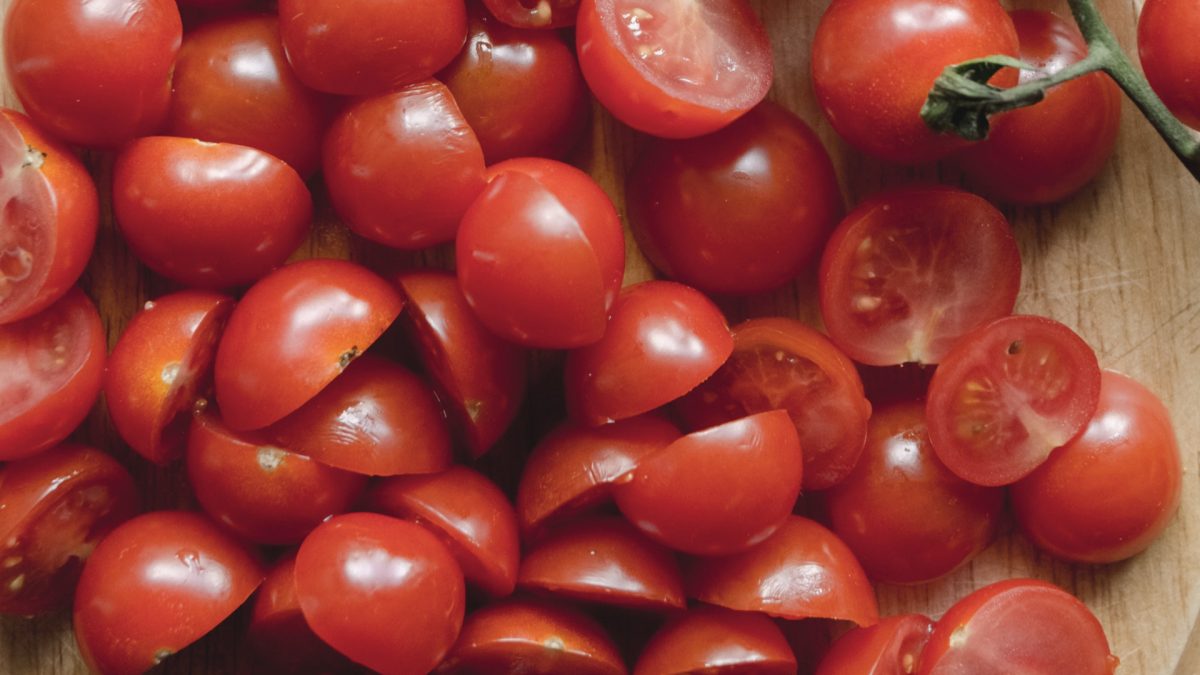A book purported to expose “hidden dangers” in healthy foods doesn’t even pass the whiff test.
I started getting emails about The Plant Paradox, a book purporting to expose “the hidden dangers in ‘healthy’ foods that cause disease and weight gain”—foods like beans, whole grains, and tomatoes. Hidden dangers? The author’s talking about lectins in a rehashing of the discredited Blood Type Diet from decades ago. I reviewed it a while ago in my video Blood Type Diet Debunked, but it just keeps coming back. The Plant Paradox was written by an MD, but if you’ve seen my medical school videos including Physicians May Be Missing Their Most Important Tool, you’ll know that is effectively an anti-credential when it comes to writing diet books, basically advertising to the world that they’ve likely received little or no formal training in nutrition. Dr. Atkins was, after all, a cardiologist. Even when we give the benefit of the doubt, the problem is it doesn’t even seem to pass the sniff test, as I discuss in my video Dr. Gundry’s The Plant Paradox Is Wrong.
If lectins are bad, then beans would be the worst, so bean counters would presumably find that bean eaters cut their lives short. But, the exact opposite may be true, with legumes—beans, split peas, chickpeas, and lentils—found to be perhaps “the most important dietary predictor of survival in older people” in countries around the world. As Dan Buettner pointed out in his Blue Zones work, lectin-packed foods are the “cornerstones” of the diets of all the healthiest, longest-lived populations on the planet. Plant-based diets in general and legumes, the most lectin-lush of foods, in particular are a common thread among longevity Blue Zones around the world, as you can see at 1:30 in my video.
If lectins are bad, then whole-grain consumers should be riddled with disease when in fact “whole grain intake is associated with a reduced risk of coronary heart disease,” the number one killer of men and women, “cardiovascular disease, and total cancer, and mortality from all causes” put together. This means that people who eat whole grains tend to live longer and suffer from fewer “respiratory diseases, infectious diseases, diabetes, and all non-cardiovascular, non-cancer causes” to boot. And, this is not only the case in population studies. As I showed in my video Can Oatmeal Help Fatty Liver Disease?, you can randomize people into whole grain interventions and prove cause-and-effect benefits. It’s the same with tomatoes. When you randomize women to a cup and a half of tomato juice or water every day, all that nightshade tomato lectin “reduces systemic inflammation” or has waist-slimming effects, reducing cholesterol as well as inflammatory mediators.
So, when people told me about The Plant Paradox, I thought to myself: Let me guess. He sells a line of lectin-blocking supplements. And, what do you know? His Lectin Shield capsules “assist your body in the fight against lectins” for only $79.95 a month. That’s only about a thousand dollars a year—a bargain for “pleasant bathroom visits.” Then, of course, there are ten other supplements for sale, so for only $8,000 or $9,000 a year, you can lick those lectins. Let’s not forget his skincare line. “Firm + Sculpt” for an extra $120 a month, which is all so much more affordable when you subscribe to his VIP club.
Look, people ask me all the time to comment on a new blog, book, or YouTube video, and I remind them that a hundred thousand peer-reviewed scientific papers on nutrition are published in the medical literature every year and we can barely keep up with those. But because people continually emailed me about this book, I decided I’d give it a chance. He tells us to “forget everything you thought you knew was true.” (Diet books love saying that.) Okay. Ready? Chapter 1, citation 1: “Eating shellfish and egg yolks dramatically reduces total cholesterol.” What?! Egg yolks reduce cholesterol? What is this citation? I’ve linked the paper he cites on shellfish consumption so you can see it for yourself. By now, you know how these studies go. How do you show a food decreases cholesterol? Remove so much meat, cheese, and eggs that, overall, saturated fat falls—in this case, about 50 percent, as you can see at 4:15 in my video. If you cut saturated fat in half, of course cholesterol levels are going to drop. So, the researchers got a drop in cholesterol after removing meat, cheese, and egg yolks, yet that’s the paper he uses to support his statement that “egg yolks dramatically reduce[d] cholesterol.” That’s unbelievable! That’s the opposite of the truth. As you can see at 4:36 in my video, the truth is if you add egg yolks to people’s diets, their cholesterol goes up. How dare he say otherwise? What’s more, it’s not like he’s spewing some harmless foolishness, like saying the Earth is flat. Heart disease is the number one killer of men and women. His claims could actually hurt people.
So much for my giving him the benefit of the doubt.
This is an unusual article for me. I normally try to stay out of the so-called diet wars and just stick to bringing you the latest science. Roughly 100,000 papers are published on nutrition in the peer-reviewed medical literature every year, and we have a hard enough time keeping up with them, but let me know what you think: Would you like me to allocate time to more of these types of reactive discussions?
You’ll note I never really addressed Dr. Gundry’s thesis about lectins, but I do exactly that in these two videos: How to Avoid Lectin Poisoning and Are Lectins in Food Good or Bad for You?.
